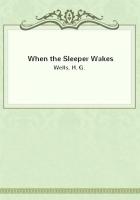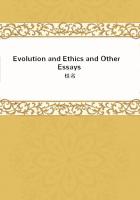The Calvinistic and covenanting principles which had determined the Scottish character in the south and west, and so far north as Fife, Perth, and some parts of Angus, had not generally permeated the region beyond.No doubt, the common people in the northern counties gladly listened to the evangelical preachers from the west, when they had the opportunity; and some of the covenanting ministers, banished in the times of persecution from their own people in the south, gathered around them in the places of their exile --as Samuel Rutherford in Aberdeen, David Dickson in Turriff -- bodies of devoted adherents attached to the Presbyterian preaching and organization.Still these were as yet merely fermenting, but leavening, centres in the midst of influences which were resisting their extension.In the wide country held by the Gordon family, the Roman Catholic religion still held its sway.In the other parts, the landlords, the college regents, and the clergy were mostly Cavalier in politics and High Church in religion; and the mass of the people bad not learned to claim the prerogative {93} of thinking and acting for themselves.When a deputation from the General Assembly of the Presbyterian Church of Scotland-consisting of Alexander Henderson, Samuel Rutherford, and Andrew Cant-went north to Aberdeen to proclaim the Covenant in 1638, they were met by "Replies and Duplies" on the part of the Aberdeen doctors, and the landlords discouraged their tenantry from following the new zeal imported from the south.The divines of Aberdeen, during that century, such as Baron and John Forbes (author of "Irenicum"), were adherents of Episcopacy; their studies were in the later fathers of the church, and their sympathies with the Laudean divines of England; and like them they wrote against Popery on the one hand, and Puritanism on the other.It was years after the Revolution before the Presbyterian Church could put its legal rights in execution in the north-east of Scotland.Almost all the old Presbyterian ministers had disappeared; and, in 1694, the Synod of Aberdeen consisted of six clerical members, most of them brought from the south.It was not till 1703 that John Willison was settled as first Presbyterian minister at Brechin in Angus; it was not till 1708 that he was in a position to dispense the sacrament of the Lord's Supper.
When he intimated that he was to do so next Lord's day, Mr.
Skinner, the Episcopalian minister who preached in the same church in the after part of the day, announced that he would dispense the communion on the same day in the afternoon to his supporters; and the ecclesiastical records report that 1500 communicated with Mr.Skinner.When Mr.Gray was appointed minister of Edzell, in the same district, the Presbytery had to conduct the services at his ordination in a neighboring parish; and they then passed into the parish to " lay hands on him " and return immediately; and, on the following sabbath when he rode to Edzell for the purpose of preaching, the people, hounded on by the landlords, took him off his horse, flung him into the West Water, and kept him there till he was nearly drowned, " to their eternal disgrace," as he causes it to be written in the parish records.During the Rebellion of 1715 the Presbyterian ministers were rabbled from their churches, which were occupied by the nonjuring clergy praying for the Pretender.
A considerable body of the students in both the Aberdeen colleges sympathized {94} with the banished king; and, after the battle of Sheriffmuir, several of the professors had to retire in consequence of the part which they had taken against the government.It was not till after the suppression of the Rebellion of 1715,-indeed, not fully till after the crushing of the chieftain power after 1745,-that the north-east of Scotland became one with the south of Scotland in religion and in national feeling.
In the universities, both tinder Prelatic and Presbyterian domination, the philosophy taught had been to a great extent Aristotelian and scholastic.The university commissioners appointed, in 1643, a <cursus> for Aberdeen;and in it the student is required, after taking Greek the first year, to go on the second year to the dialectics of Ramus, to Aristotle's categories, interpretation, and prior analytics, and in the third year to the rest of logics and portions of the ethics of Aristotle, &c.In the "Metaphysics " of Robert Baron, who lectured in Marischal College in the first half of the seventeenth century, he treats of being, unity, and goodness; enters fully into the controversy between the Thomists and Scotists; gives the divisions of <ens> and of cause, and treats of necessity and contingency, of sameness and diversity, of absolute and relative, of whole and parts.In the university library of Aberdeen we have theses occupying 121 pages by Andrew Cant, the younger, of date 1658; in these he shows that he knew the Copernican theory of the heavens and Harvey's discovery of the circulation of the blood: but the whole discussions are conducted in a formal manner; and he dwells fondly on the scholastic logic, in the treatment of which he shows some independence of thought.In 1710 there was published a work by Thomas Blackwell, who had come from Paisley, in 1700, to be minister at Aberdeen in the Presbyterian interest, and who was made professor in 1711, and principal in 1717: his work is entitled " Schema Sacrum, or a Sacred Scheme of Natural and Revealed Religion; " and in it the common orthodox theology is defended by the old distinctions, and there are no traces of a new spirit or a new school.
But, after the year 1715, Aberdeen was prepared for a new style of thought.The High Church theology was no longer encouraged, except among a scattered nonjuring clergy subjected to poverty and privation.The Calvinistic divinity had {95}never struck its roots deep into the soil; but the literature and physical science of England were known to and relished by the educated classes, and there must be a fresh philosophy to meet the awakened intelligence and new tastes of the country.The first to gratify this feeling was a young graduate of Edinburgh, appointed as one of the rectors in Marischal by the Crown, which had seized the patronage of the college, vacated by the attainder of Earl Marischal, who had been out in the rebellion.















